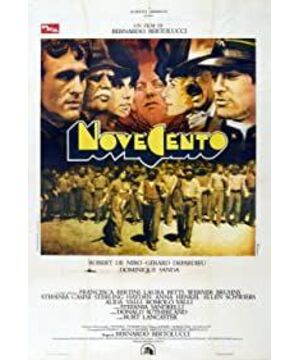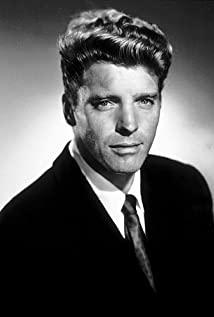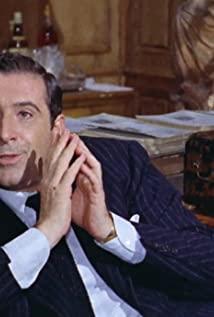The English title of the film is 1900, which is said to have made director Bertolucci very upset; it is no wonder that the original Italian title "Novencent" means the 20th century, and the actual time span of the film covers at least the first half of the 20th century (the director deliberately shot the film) For the whole century, but no one has invested). Bertolucci's intention was clear: to represent the chronicle of the first half of the 20th century in Italy with the fate of a pair of master and servant living in a small village. This epic model of seeing the big from the small, especially the communist revolution that swept in at the end, can not help but remind people of Chen Kaige's "Farewell My Concubine" 20 years later.
Alfredo, the grandson of a pampered landowner, and Olmo, the grandson of a bitter serf, were born together on the day the Italian opera composer Verdi died. They have never known each other since they were young, frog fields, silkworm houses, wheat fields, railway tracks, some are missing, some are bitter and happy, leaving a lot of ignorance and madness. Obviously, under normal circumstances, they will definitely become iron buddies who are sincere; but the confrontation of identities has always caused a gap between the two, and they cherish this friendship and have reservations. After Olmo was discharged from the army in World War I, the two hit it off and went to prostitutes together as the last "honeymoon"; the various injustices and fascist repression that followed made Olmo embark on the road of socialist revolution, and the two gradually became estranged until they broke up. In the process, the addition of two new characters also played a role: Ada, a mysterious woman from France, and Attila, a new foreman hired by the landlord. The unpredictable and charming Ada is a perfect match for Alfredo, who is also very open-minded and neurotic. Attila is a key fuse. This man is cruel, sinister and tyrannical. As a representative of fascism, he can do whatever he wants while Mussolini is in power. Olmo and Ada have repeatedly persuaded Alfredo to fire him, and Alfredo has indeed distanced himself to a certain extent (he doesn't allow others to say he is a fascist), but refuses to fire him (his explanation is to avoid the rat). Finally, when Olmo was framed and beaten by Attila and Alfredo stood by, this friendship and love had actually ended. The latter development is nothing more than deterioration or relapse. The director dramatically arranged for Olmo and Ada to leave Alfredo on the day he made up his mind to part ways with Attila. Ada never came back, and Olmo later became the judge. So far, the class opposition has turned a pair of childhood friends into enemies, and the difference in political stance has made a pair of lovers separated from each other. History is created by people, and individuals rise and fall in history. This is the common position of all epic films.
Bertolucci's films are naturally inseparable from politics and sex. As a Marxist, he vigorously accused the crimes of fascism in this film, condemned the cowardice and cowardice of the aristocratic landlord class, and gave infinite sympathy to the vast number of serfs and proletarians. Of course, we know that Italy did not embark on the road of socialism, but was ruled by the Italian Catholic Democratic Party for many years, and the Communist Party was only the second largest party. The film ends with a half-hour trial, both impassioned and compromising, including Alfredo's final line: The landowner is alive again. Bertolucci may express his regret here - those who should not have handed weapons should be more determined. As for sex, at least in this 5+ hour version it's all over the place: two little boys masturbating into a pit on the ground, looking at each other's foreskins, the old master letting the little girl masturbate him, the naked prostitute holding two Penis (one Robert De Niro and one Gérard Depardieu! It's going to cost you money), Ada in tulle dancing with her uncle and nephew... No wonder it was rated NC-17. Another version released in the United States cut out a lot of scenes involving children, but it was still rated R, and it seems that Bertolucci, who had just been criticized for "Last Tango in Paris", did not change his way of doing things.
In terms of film language, Bertolucci, who was only in his 30s, was already a master. The smooth movement of the shots, the strong color rendering, the long shots that surprise from time to time, the small details that echo before and after, the natural and refined lines, the combination of the four seasons. The fact that this film did not win any awards is definitely related to its political inclination. In my opinion, its level is at least not under "Farewell My Concubine", the best domestic film. Don't forget that they are still 20 years too early.
The film's funding came from three American companies, and the three prominent male protagonists also came from three countries: Robert De Niro of the United States has won the Oscar for Best Supporting Actor for "The Godfather 2", and the just-released "Taxi Driver" ” made him even more popular; Gérard Depardieu of France was not yet famous at the time, but he was also a big-nosed lover of the movie king level later; Donald Sutherland of Canada played a fascist who was fascinated and bullied by bloodthirsty and cruel people. Incisively and vividly, far from his hilarious image in "M*A*S*H". Coupled with Dominique Sanda, who plays Ada from France, and Laura Betti, who plays Regina from Italy (Alfredo's cousin, Attila's lover), it is truly an international big cast.
View more about 1900 reviews











